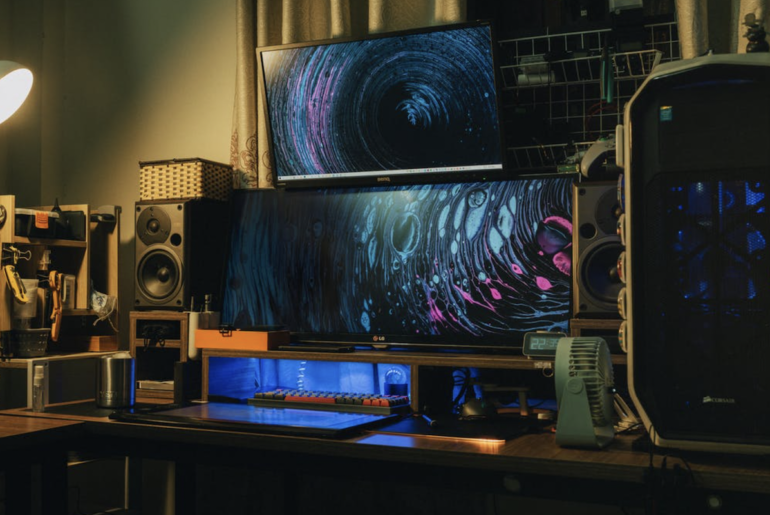Sharing your hobby with the world has never been easier with the advent of streaming platforms like Twitch. Being able to show off your skills on your favourite video games is a great way to make new friends, join new communities and maybe make a little bit of extra money. Are streaming PCs the same as regular gaming PCs? What about if you do all your gaming on a console? Let’s have a look at what you need to consider when choosing the best streaming PC.
One PC or two PCs?
You may have heard talk about the different kinds of streaming set-ups and be wondering what the difference is and why you might need two PCs to stream. If you have one really powerful PC, then it should be more than capable of streaming and gaming at the same time. If you’re using an older, or less powerful, machine, however, you may need to use a capture card. This sends the recording of your gaming to a second PC which then streams it to a streaming platform, like Twitch. This is also how you stream from a console, using a capture card and a PC to stream the recording.
We’ll be focusing on one-PC set-ups in this article, as a two-PC set-up is more complicated. It also often ends up with the stream being of worse quality than if it was streamed from one PC. This is due to the extra steps in the process of getting the recording to your streaming platform.
Components
Graphics card (GPU)
You’ll need a graphics card that is capable of running the games you play. The Nvidia GeForce RTX series are among the best graphics cards around, so they’re definitely worth the investment, and give you options that can help future-proof your PC as well.
Processor (CPU)
Your processor should have at least six cores, and be either made by AMD or Intel. Intel’s i5 (and equivalents) are probably the minimum specs for processors.
Memory (RAM)
You’ll need at least 16GB of memory, but 32GB would future-proof your machine, and give you plenty of RAM to run both the games you’re playing, streaming software and any other programs you might use – like something similar to Discord for communication with your teammates.
Storage
You’ll want both a solid state drive (SSD) and a hard disk drive (HDD) – the faster SSD to hold the operating system and important programs, and the HDD to store your games and documents. You’ll probably want at least 1TB of storage on the HDD and at least 240GB on the SSD, but if you can afford a bigger SSD, there’s no reason not to have one and store your games on that as well to help them load faster.
Cooling
You will need a really good cooling system for the best streaming PC. You’re doing more than just game, so your PC will be a little bit hotter than it normally would. Keeping it cool is vital for both its health and your stream value as it wouldn’t be a good experience for you or your viewers if your PC shuts down automatically during a stream because it overheated.
Case
Regardless of how you want your case, and therefore the outside of your streaming PC, to look, it’s important that it’s quiet. The machine can make a lot of noise because of the intensity of the games and streaming programs it runs. If your viewers hear this, it might put them off the stream if they think it sounds unprofessional. A quiet case will help a lot, as will putting the PC under a desk, possibly with sound-proofing foam around it.
Power supply (PSU)
Your power supply will need to comfortably provide enough power for your machine, but don’t go overboard. What’s more important than having excessive amounts of power from your power supply is its efficiency rating. Anything less than a gold rating will mean that it isn’t efficient enough to save you money in the long run.
Summary
Choosing the streaming PC is ultimately a relatively simple process. Usually, if you have a powerful gaming PC, it will also be able to handle streaming easily. There are a few things to think about that you might not when buying a gaming PC that isn’t meant for streaming, however. Any streaming PC should be quiet, to give your viewers the best possible experience, and it should be able to comfortably handle any of the games you want to stream as well as the streaming software and other programs that might help you.

